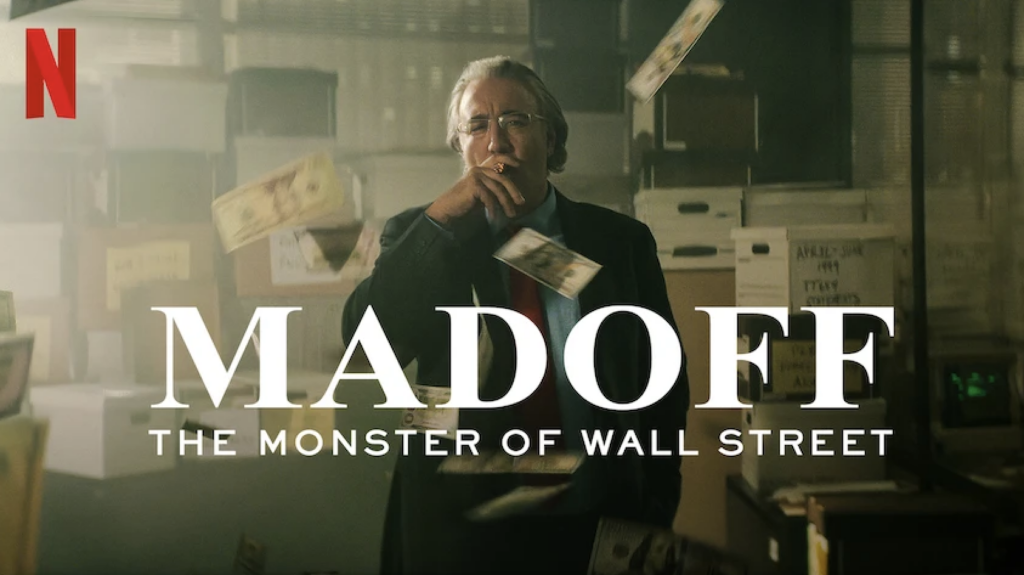5 Netflix True Crime Docs Everyone Raved About (Even Though They’re Garbage)
BY XAN HOLBROOK
In Decline of the English Murder, George Orwell observed that Sunday newspapers, and their readers, could not get enough of the foul business of killing. But, unless the MOs, victims and deaths followed a particular pattern, the crime stories were not fit for consumption.
Netflix’s recent penchant for churning out crime documentary series is admirable only in the sense of its output. I’d go one further than most critics of this phenomenon, and say that there are a bunch of highly popular documentaries which have been lacking calories since the day they first streamed.
Since the storming success of the first season – well, first episode – of Making a Murderer, Netflix abandoned any and all caution about the investigative series format and began looking at other cold cases, dark stories, and unpleasant goings-on that could stretch to ten episodes. My own opinion on this format goes thus – it took Errol Morris just under two hours to expose the case against Randall Adams as nonsense, and get him a retrial. Why the hold-up, Netflix?
In truth, it’s because a lot of the cases lack substance, and many documentarians – raised on the excretions of Michael Moore and Peter Joseph – lack panache. In order to show you, in the fullest manner, just how bland a lot of these series are, spoilers abound from hereon in. I’ll try and define for Netflix, as Orwell ruefully phrased it in his second paragraph, “what it is that the readers of Sunday papers mean when they say fretfully that ‘you never seem to get a good murder nowadays’”:
The Keepers
I mention all of this because The Keepers reads like an itemized list of things you’d find in the build-your-own-Netflix-Crime-series assembly kit, that may one day exist. Numerous talking heads, sombre music, pointless tracking shots of inanimate objects, a muted palette and glacial editing.
Who killed Sister Cathy? opines the poster.
Now that it has been out for two years, they should add an appendix that says, Fuck if we know.
Confessions of a Killer: The Ted Bundy Tapes
Everyone’s favorite satanists The Last Podcast on the Left rightfully treated this meat-parade as what it was – a film enamored by its loathsome subject. It’s not reason enough to watch four hours of this tosh just for the gimmick of hearing Bundy’s own batshit rationalization for how it could not possibly have been him. The long lingering looks at his chiseled jaw, capturing a glint in his eye, Oh, isn’t he just the boy next door? Do you reckon Zach Effron could play him?
What makes this series not only tepid, but detestable, is the complete lack of grisly detail. I do not mean to sound ghoulish when I say this, but a lot of people would be far less glib about Bundy if they knew just what exactly he did to his victims.
What Jennifer Did
Where to start with Jennifer Pan? For a student with parents with as allegedly high and brutal standards for her, she sure was dense as mince. In a tale eerily reminiscent of the Menendez Brothers, she contracted some other problem children to kill her parents and expected to inherit a fat sandwich from them. Amateurs gonna amateur, however, and only her mother died. She and the crayon-munchers she hired were swiftly caught and are all serving life sentences.
See that forgoing paragraph? Someone explain to me how this can stretch to an hour… Oh, by using AI-doctored images and the same infuriatingly slow editing, that’s how. And Netflix is planning to give the Menendez Brothers the Dahmer treatment, although they’re also opening up the floor to the boys’ transparently flimsy and conspiratorial defense.
Madoff: The Monster of Wall Street
Although I have the financial and mathematical skill set of a half-eaten gravy-sodden biscuit, I find documentaries about white-collar crime fascinating. One reason is that we can have a look at the raging, throbbing id of modern capitalism after its mask slips. The other is to gain a further understanding of just how destructive these companies can be on a good day, never mind when they collapse and take employee pensions and savings with them. The title of this documentary leads one to believe that Madoff was some kind of omniscient, Machiavellian nemesis – a man capable of striking fear into the hearts of boardroom psychopaths.
In reality, he ran a ponzi scheme which ended as all ponzi schemes do – no one left to swindle, and he died in jail. He just happened to do it to the ultra-wealthy.
As an anti-climax goes, this is the equivalent of that bloke doing Down With The Sickness on karaoke.
The Ripper
I find this offensive on so many levels. Peter Sutcliffe – the earth-shattering loser and sexual chump who went on a rape and murder spree from 1975 to 1981 – is treated like a master phantom who melted into the ether after every crime and frustrated police at every turn, like a flat-voweled Keyser Soze.
All bollocks, and here’s why.
The cultural bog in which this murderous flower blossomed is never taken to task in the documentary. The real Sutcliffe was, like I said, a giant pain-in-the-arse braggart, loser and fantasist, who boasted of contracting STDs and assaulting women. So why wasn’t he caught sooner? The Police threw much personnel and materiel to capture him, only for a routine beat patrol to do what millions of pounds and man hours could not. Appeals to the public did not reveal him to the authorities, despite several people having their suspicions and even reporting him directly.
This is because the air in which Sutcliffe moved was itself rank with misogyny and the worst urges of man. As these revealing clips show, the public only took an interest in the case once he started targeting women outside of the sex industry, and the investigating detectives even called into question the ‘moral character’ of the slain women, openly, on television. Lurking behind these admittances, and not always very far behind at that, is the nauseating idea that these women asked for their attacks. A true look at the case reveals that, once the idea that this killer was targeting prostitutes only, all his other victims were subject to this smear (the testimony of survivors like Marcella Claxton, Theresa Sykes, Upadhya Bandara and Maureen Long are conspicuous by their absence).
All of this context, freely available and blatantly obvious to anyone who even glances into this case, sails merrily over the filmmakers’ heads. The context they provide? England in the 1970s was tough. There were strikes and, err, Thatcher. Anyway… The final episode of the series, concerned entirely with Sutcliffe, is infuriating, flippant and shallow, like the rest of this complete and utter turd bowl of a documentary.
I am firmly not one of the many, many moralisers who bemoan true crime as a genre or an interest. I believe the study of crime is as necessary to sociology and politics as the study of disease is to medicine. I also believe that streaming is a bold frontier of content creation, free of the hegemony of networks and more open to the up-and-coming creative, and that Netflix has created some solid gold documentaries in the recent past.
However, any factory, any powerhouse, needs its quality control.
The machine is lacking fuel – stop churning these out.














